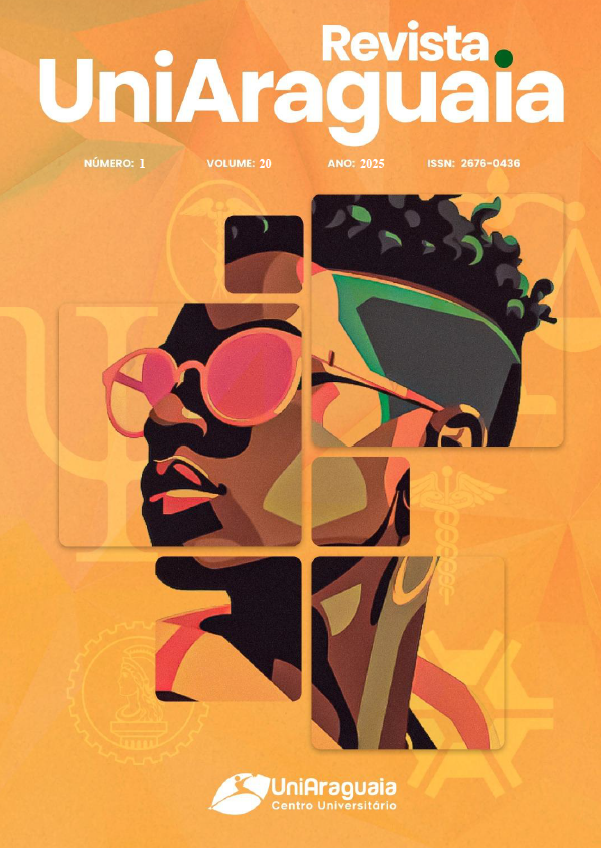BETWEEN PUNISHMENTS AND KNOWLEDGE: A HISTORICAL ANALYSIS OF THE CHALLENGES OF PRISON EDUCATION AND ITS CONTRIBUTION TO RESOCIALIZATION IN THE PARAENSE CONTEXT
Keywords:
Educação Prisional, EJA, RessocializaçãoAbstract
This study aims to analyze prison education as a tool for resocialization in the context of the state of Pará, with an emphasis on the Youth and Adult Education (EJA) modality. Amidst a backdrop of rising crime rates and precarious structural conditions in Brazilian prison facilities, the research is guided by the question: How do the historical and structural challenges of prison education, particularly within the EJA modality, impact the resocialization processes of incarcerated individuals in Pará? To address this question, the study explores the historical evolution of punitive practices and incarceration systems on global, national, and regional scales, highlighting the transformations that have occurred over time. Furthermore, it examines the socio-economic profile of incarcerated individuals in Pará and analyzes the regulatory documents that guide educational processes within the prison environment. The qualitative approach adopted, based on bibliographic and documentary research—as outlined by Dias and Silva (2009), Lakatos and Marconi (1992), and Lüdke and Menga (2018)—allowed for a critical and reflective interpretation of the data, integrating theoretical contributions from authors such as Freire (1996), Foucault (1987), and Durkheim (1975). The findings indicate that, although the implementation of EJA programs represents progress in the resocialization process, historical, socio-economic, and cultural barriers continue to hinder the effective execution of these initiatives.
References
BURNS, Edward McNall. História da Civilização Ocidental: do homem das cavernas até a bomba atômica. 2. ed. São Paulo: Editora Globo, 1982. 1096 p. Tradução de: Lorival Gomes, Lourdes Santos Machado Leonel Vallandro.
DIAS, Donaldo de Souza Dias; SILVA, Mônica Ferreira da. Como escrever uma monografia – Rio de Janeiro: UFRJ/COPPEAD, 2009.
DURKHEIM, Emile. Educação e Sociologia. Petrópolis, RJ: Vozes, 2011. Tradução de: Stephania Matousek.
FOUCAULT, Michel. Vigiar e Punir: nascimento da prisão. Tradução de: Raquel Ramalhete; 16ª edição. Petrópolis: Vozes, 1987.
FRANÇA, Rosilene Marques Sobrinho de. Encarceramento e Educação Prisional em Tempos de Neoliberalismo e Conservadorismo no Brasil. Educação & Sociedade, Campinas, v. 44, p. 1-18, 2023. Disponível em: https://www.scielo.br/j/es/a/vZGgMfmwZn34cxJJtvmmwSM/#. Acesso em: 12 nov. 2024.
FREIRE, Paulo. Pedagogia da autonomia: saberes necessários à prática educativa. São Paulo: Paz e Terra, 1996. – (Coleção Leitura)
FREIRE, Paulo. Pedagogia do oprimido. 17 ed. Rio de Janeiro: Paz e Terra, 1987.
GOMES, Luiz Flávio. Beccaria (250 anos) e o drama do castigo penal: Civilização ou barbárie. 1 ed. São Paulo: Saraiva, 2014. 352 p. (Coleção Saberes Críticos)
GOMES, Luiz Flávio; MAZZUOLI, Valerio de Oliveira (org). Crimes da ditadura militar: uma análise à luz da jurisprudência atual da Corte Interamericana de direitos humanos: Argentina, Brasil, Chile, Uruguai. São Paulo : Editora Revista dos Tribunais, 2011.
LAKATOS, Eva Maria; MARCONI. Fundamentos de Metodologia Científica. 8.ed São Paulo: Atlas, 2017.
LÜDKE, Menga; ANDRÉ, E.D.A Merli. Pesquisa em Educação: abordagem qualitativa. 2.ed. Rio de Janeiro: E.P.U, 2018.
MAIA, Clarissa Nunes; SÁ NETO, Flávio de; COSTA, Marcos; BRETAS, Marcos Luiz (org.). História das Prisões no Brasil: volume I. Rio de Janeiro: Anfiteatro, 2017.
Downloads
Published
Issue
Section
License

This work is licensed under a Creative Commons Attribution 4.0 International License.
The copyright of the published articles will be transferred to the Uniaaraguaia Magazine, allowing its subsequent reproduction as transcription and with due citation of source. In the event of acceptance and before the publication of the article, the plaintiff (s) shall write a statement formally transferring copyright to the magazine.
The author may also print and distribute copies of his article, provided that he mentions that the rights belong to the Uniaaraguaia Magazine.
Author rights include the right to reproduce in full or partly by any means, distribute this article, including figures and photographs.
By submitting originals to the Uniaaraguaia magazine, the author or authors express agreement with the following terms:
a) Authors maintain copyright and grant Uniaraguaia magazine the right of first publication, with the work simultaneously licensed under the Creative Commons Attribution license that allows the sharing of work with recognition of the authorship and initial publication in this magazine.
b) Authors are authorized to assume additional contracts separately, for non-expiration distribution of the work version published in this magazine (eg publish in institutional repository or as book chapter), with recognition of authorship and initial publication in this journal.
c) Authors are allowed and are encouraged to publish and distribute their work online (eg in institutional repositories or on their personal page) to any point before or during the editorial process, as this can generate productive changes as well as increase the impact and citation of published work.

